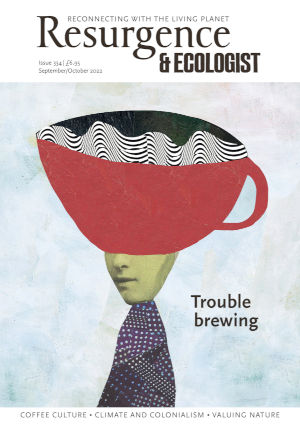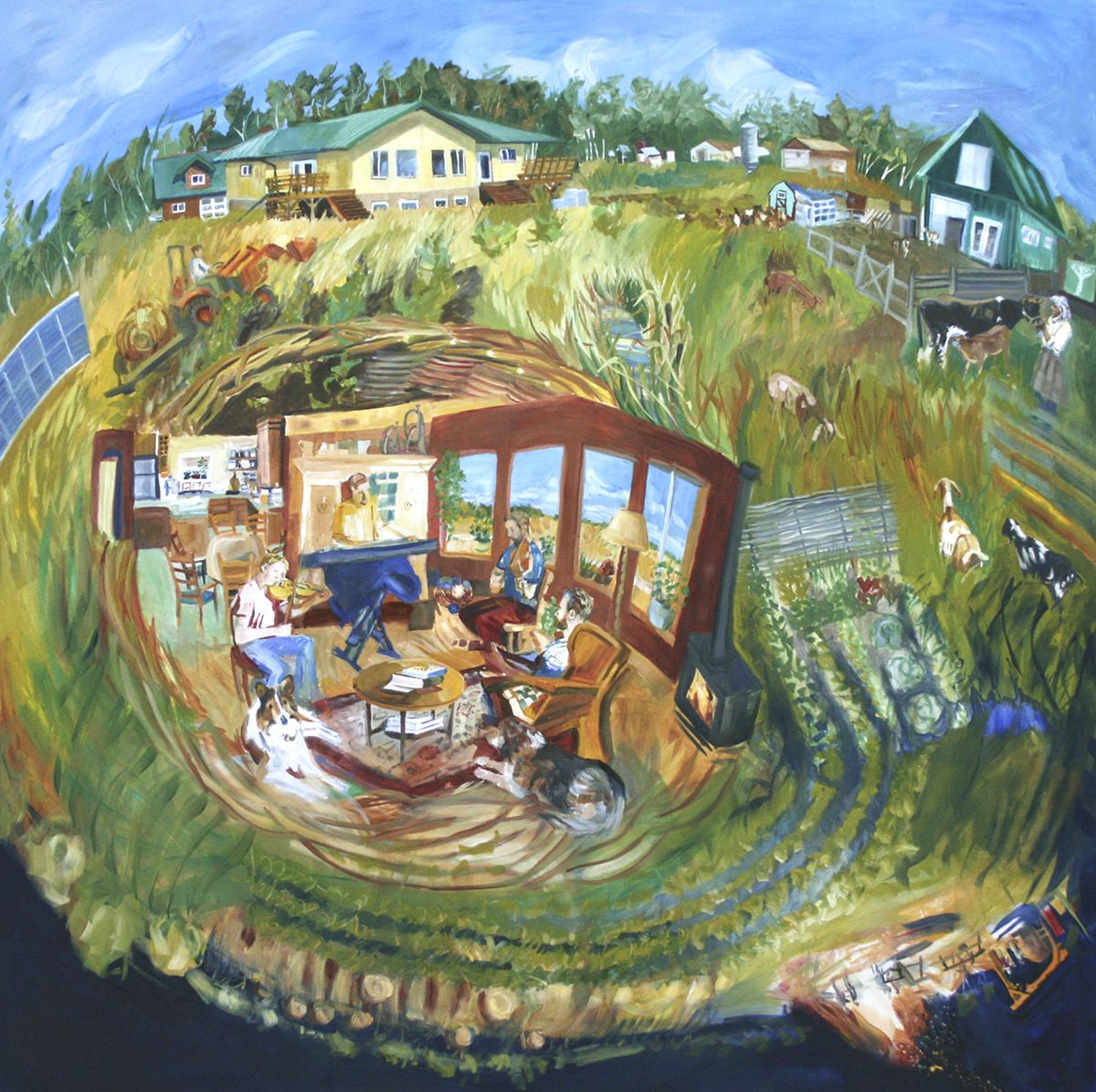Regenesis is a good and seductive read, but its overall thesis is a diversion, leading us on false trails, throwing out very promising babies with the bathwater, and failing to identify or get to grips with the world’s deep, underlying problems: those of governance, economics and, above all, mindset. Like today’s politicians, Monbiot is all too keen on gimmicky techno-fixes.
His main target is agriculture itself – humanity’s collective endeavour to persuade Nature to produce food (and fibres and drugs and dyes, etc. etc.) for us. At its best the relationship can be relatively benign. Some quasi-artificial ecosystems are wonderfully diverse and rich, as meadows are. At its worst – which it often is – agriculture is the most destructive force ever unleashed upon the world: as Monbiot says, a root cause of climate change and mass extinction.
Yet it is still, so the United Nations tells us, leaving nearly a billion people hungry. Meat, dairy and eggs are the main problem. In general, pasture for dairy cows provides only about one-tenth of the protein and calories that could be produced from cereals, and beef provides perhaps one-hundredth. Monbiot’s solution is to produce more food on less land and ‘rewild’ the land that is thus released – an exercise in ‘land-sparing’ – and, of course, to cut out meat. Meat, he tells us, should be replaced by protein produced from microbes by ‘precision fermentation’.
Monbiot’s argument sounds logical, and suitably radical. He supports his case with an impressive 85 pages of learned references. Yet this line of thinking is simplistic in the extreme and if taken too seriously would lead the world astray.
It’s true that meat as now commonly produced is horribly profligate, polluting, cruel and generally nasty. But in many societies worldwide, livestock isn’t just food. It is at the centre of cultural life. Nutritionally, meat, dairy and eggs are sources not simply of protein and energy, but also of essential fats and minerals that are hard to get from plants, including calcium and zinc. Traditionally cattle and sheep were raised on land that could not reasonably be used for crops – too wet, too dry, too cold, too high – while poultry and pigs were fed on surpluses and leftovers. Used thus, the relationship between livestock and arable and horticulture becomes synergistic, the animals mopping up and in turn providing fertility. Such systems don’t produce much meat and dairy, but then we don’t need much. In truth, all the world’s greatest cuisines on an axis from Italy to China use meat sparingly – primarily as garnish and stock. Monbiot’s preferred route – ersatz microbial protein – might prove useful in some contexts but certainly is not vital, or the herald of a new dawn. It is just another example of high-tech replacing established craft in the name of modernity.
What we really need are small, low-input, mixed farms – a balance of plants and animals as in Nature. The ersatz factories by which Monbiot places such store could be owned and controlled by communities, but in practice the huge capital that’s required must come from corporates and financiers. Thus, in seeking to be radical, Monbiot leads us back to the status quo.
Regenesis is an enticing read with plenty of good stats, but if it is taken too seriously, as I fear it might be, it will simply be a diversion. And diversion, at this late hour, is precisely what we don’t need.
Brendan Montague asks, why not Homo regenesis?
Human beings have been naming themselves from time immemorial. Homo sapiens has been surpassed, we’re told, by Homo economicus. And the 7 billion human beings alive today are apparently collectively responsible for our entering the Anthropocene – a period in geological history where Nature is determined by us, a single species. And not in a good way. But why not the Regenocene?
George Monbiot opens Regenesis with a description of his relationship with an apple orchard close to his home in one of Britain’s old university cities, and his discovery, after 35 years as a trained zoologist working in newspaper journalism, of the incredible complexity of the soil, and the miniature life that it contains. I found these passages deeply moving, with the description of the trees, the insects and the microbes evoking my own utopian hopes for a society based on a symbiotic relation.
The author of previous environmental blockbusters from Heat to Feral then addresses the question posed in the subtitle of the work – can we feed billions of human beings without wiping out the world’s wildlife and without undermining the complex life-support systems that we call Nature? Monbiot is in search of real, global solutions, and these are foregrounded while the existential problems of our food systems are nonetheless addressed head-on. Monbiot’s classically structured ‘journey of discovery’ involves a series of meetings with real grassroots farmers and food producers who have mud under their fingernails and who are beating a path to a future food system that is regenerative and productive.
The description of the current state of our food system is extremely unsettling. Monbiot’s Twitter biography says, “The corpse at every wedding, the bride at every funeral”. He has long been the intellectual canary in an increasingly uninhabitable mine. A major strength of this book is that it presents a systems theory analysis of our food systems in a way that is accessible. We hear how issues of uniformity, modularity and contagion within a network all apply to the global food industry. If we heed the warning from the financial collapse of 2008, a complex system degrading towards chaos, we can avoid a food systems collapse that could cost millions of lives. My one gripe would be that I wish Monbiot had said more about how the capitalist economic system necessitates much that he sees as going wrong in our food systems. Readers would benefit greatly from reading Regenesis alongside the seminal study from Paul Sweezy and Paul Baran titled Monopoly Capital: An Essay on the American Economic and Social Order (published in 1966).
Regenesis means ‘new birth’ or ‘renewal’. It is very nearly a neologism. But it is a term and a concept that needs to become the very definition of human connectivity to Nature, including our relationships with each other. Monbiot is clear that this means total, world-historical systems change. We cannot let ‘the Anthropocene’ become our planetary epitaph.
Read longer versions of these reviews at www.theecologist.org







